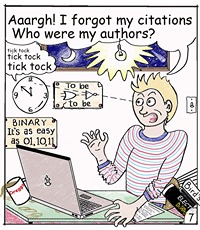Promoting Academic Integrity: A Guide for Staff
A guide for staff on academic integrity. Learn how to identify and address student misconduct while maintaining fair assessment practices.
Me tika. Me rite. Me pono.

The University of Waikato is committed to excellence, respect, and honesty in scholarship and to ethical professional conduct. Academic integrity is at the core of this commitment and requires all members of the University community (students, academic and general staff) to uphold academic integrity as a personal, academic, and professional responsibility.
Mā te Tangata! Mō te Tangata!
Actions you can take
Actions you can take to encourage students’ positive behaviour include:
- Assessment design that minimises the possibilities of plagiarism.
- Be open and proactive in discussing academic misconduct, ethical behaviour, plagiarism and cheating, and ensure that your paper outline contains the correct Regulations and information about University procedures.
- Be aware of tools, devices and websites relevant to your discipline which students may use.
- Set, share and discuss your expectations with students. Ensure students know how to ask for extensions, ask for help and where to go on campus for support.
- Encourage students to look at the Turnitin help pages for students and learn how to use Turnitin similarity reports to improve their assessment drafts.
- Ensure students have completed the Academic Integrity module in Moodle.

Artificial intelligence
 Recent developments in artificial intelligence (AI) present challenges and opportunities for how we design our assessments. New tools and devices using AI are continuously emerging. The broad assessment design principles recommended below should also deal with the emerging use of AI. Turnitin remains an effective tool for the detection of plagiarism.
Recent developments in artificial intelligence (AI) present challenges and opportunities for how we design our assessments. New tools and devices using AI are continuously emerging. The broad assessment design principles recommended below should also deal with the emerging use of AI. Turnitin remains an effective tool for the detection of plagiarism.
Guidelines on the use of generative AI tools have been shared with students and are available on the Regulations and processes page.
For the latest updates, assessment design tips, and recommendations on AI use, see:
Assessment design
Assessment design to promote positive behaviour:
- Modify the task each year so that students cannot copy work from previous years.
- Use and discuss clear, relevant marking criteria and rubrics with your students.
- Set sub-tasks that require students to show their process steps.
- Avoid designing an assessment task or an assessment schedule that might overburden the students. Students under pressure are more likely to cheat or seek unauthorised help.
- Include an oral component where you can revisit what was written.
- Include an individual component in a group task; highlight that collusion is a form of academic misconduct.
- Avoid surface-level tasks that only require reproduction of material.
- Use different types of assessment tasks.
- Develop assessment tasks that have more than one solution.
- Design formative assessment (that does not count toward the overall grade) that links to summative assessment (that does count toward the overall grade).
- Develop a regular and robust assessment-feedback-learning loop. Provide actionable feedback to students, and adjust your teaching when you identify gaps in students’ learning or application.